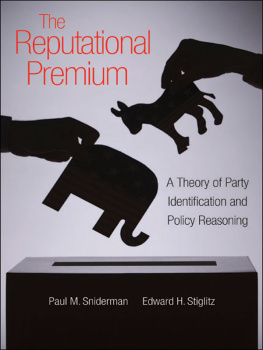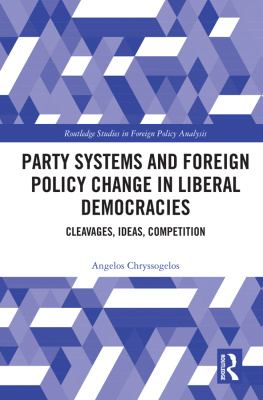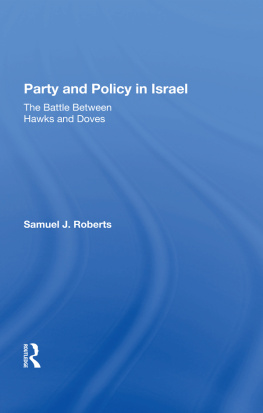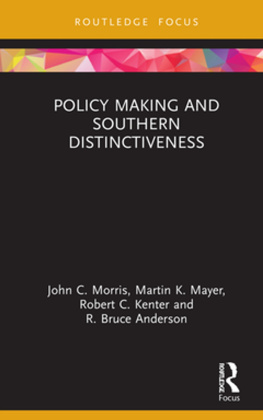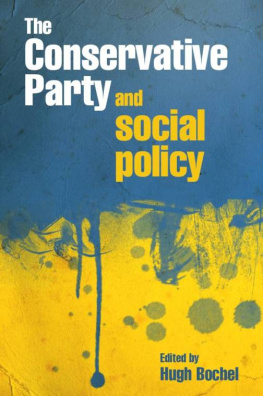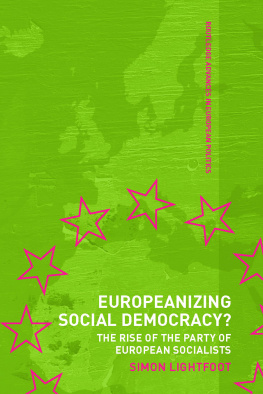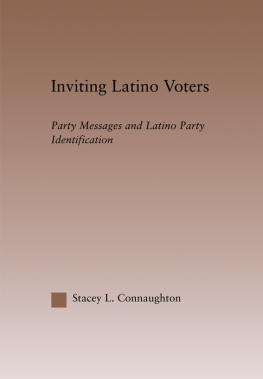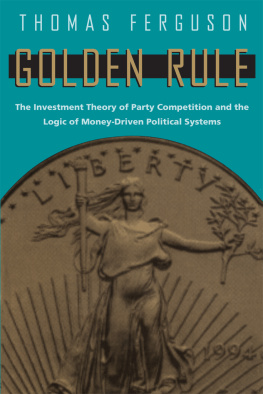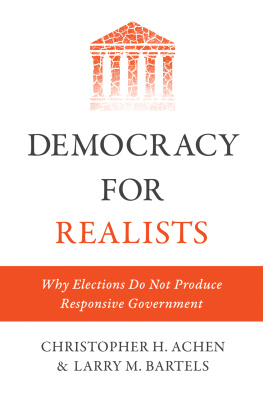Copyright 2012 by Princeton University Press
Published by Princeton University Press, 41 William Street, Princeton, New Jersey 08540 In the United Kingdom: Princeton University Press, 6 Oxford Street, Woodstock, Oxfordshire OX20 1TW
press.princeton.edu
Jacket Photograph: Photo Comstock Images. Courtesy of Getty Images.
All Rights Reserved
Library of Congress Cataloging-in-Publication Data
Sniderman, Paul M.
The reputational premium : a theory of party identification and policy reasoning / Paul M. Sniderman, Edward H. Stiglitz.
p. cm.
Includes bibliographical references and index.
ISBN-13: 978-0-691-15414-5 (cloth : alk. paper)
ISBN-10: 0-691-15414-7 (cloth : alk. paper)
ISBN-13: 978-0-691-15417-6 (pbk. : alk. paper)
ISBN-10: 0-691-15417-1 (pbk. : alk. paper)
1. Party affiliation. 2. Political partiesPublic opinion. I. Stiglitz, Edward H., 1980-
II. Title.
JF2071.S65 2012
324.2dc23 2011039796
British Library Cataloging-in-Publication Data is available
This book has been composed in Sabon Lt Std
Printed on acid-free paper.
Printed in the United States of America
10 9 8 7 6 5 4 3 2 1
Preface
THE ORIGIN OF THIS study was a three-way partnership of Robert Van Houweling, Michael Tomz, and Paul Sniderman. We conceived of and proposed to the National Science Foundation an analysis of spatial reasoning, and we collaborated on an equal basis in the first phase of the project. Tomz and Van Houweling then focused on a series of innovative experiments to assess the comparative validity of the established formal theories of spatial reasoning. In contrast, Jed and I set out on a different path. Our objective: to develop a new account of party identification, melding the insights of the social psychological analysis of voting in the tradition of The American Voter and those of rational choice accounts of elections in the tradition of Anthony Downs, An Economic Theory of Democracy. We have, however, been partners throughout: in the sense that gives true meaning to the term partnership.
It has been an adventure. We thought we had made a major discovery in our very first effort. Party loyalty, not candidate positions, was the overwhelming force. Indeed, the more strongly voters identified with one or the other of the parties, the more likely they were to perceive the candidate of their party as representing their policy positioneven when there was unambiguous evidence right in front of their eyes that the position of the candidate of the opposing party was closer to their own.
With that view in mind, score a victory for the social psychological perspective of The American Voter over the rational choice perspective of An Economic Theory of Democracy. Or so we first thought. But we were wrong, wrong, wrongall the way down, as it turned out. It has taken us years of exploration and experimentation to understand what we had first misunderstood. The result is the new theory of party identification and policy reasoning that we shall present.
Without Mike Dennis at Knowledge Networks there would have been no beginning. Then from beginning to end, we have had the support of the National Science Foundation. In ways large and small, Brian Hume, program director for political science, has provided support. Also, the Institute for Research in the Social Sciences, under its director Karen Cook and its executive director Chris Thomsen, has given us encouragement and support to navigate choppy financial waters.
Our intellectual debts threaten to swamp us, however. At a departmental book conference, specially arranged by our colleagues Simon Jackman and Gary Segura, James Adams and Lynn Vavreck gave formal reviews of the penultimate draft of the manuscript, then followed up with written memos detailing weaknesses and identifying issues in need of attention. Whether we have reached our goal is for others to judge. But we would not have spotted the path we have followed to it without Lynn and Jim's redirecting us from the one we had been following. As for their generosity of spirit, we lack the words to express our appreciation in the measure that is their due.
Our colleaguesintellectual comrades and friends might better capture the spirit of the department of political science at Stanfordhave been splendid. Morris Fiorina, in particular, read and remarked on an earlier draft. Jonathan Wand has lent us help in both detailed comments and what he must have fearedwould be endless conversations. Karen Jusko, Jonathan Rodden, and Ken Schultz suffered our interruptions with grace. We always left wiser, above all, in learning that the ideas we had arrived with were treacherously vague or, on occasion, quite simply wrong.
Each project has a life history: getting across the finish line requires getting through a (sometimes) seemingly infinite bramble bush of organizational and larger professional challenges. Nothing gives us more pleasure than to turn now and thank the three colleagues who were most helpful in getting us throughor overor around this bramble bush. Each was invaluable in their singular way. So we shall mention each in a singular style. There is Jackie Sargent. There is Eliana Vasquez. And there is Stephen Haber. Among our colleagues in the profession we have many to thank, but we would be specially remiss if we failed to mention James Alt, Jamie Druckman, Gabe Lenz, Ted Carmines, Byron Shafer, andfor encouragement beyond measureJim Kuklinski. Our friend and intellectual scrutinizer nonpareil, Martin Shapiro, commented extensively (and sometimes bracingly) on the next-to-last draft. One usually thanks one's editor for encouragement. Yes, our editor, Chuck Myers, was unstinting in his support. But what sets him apart as a partner to prize is his coupling of friendship with an uncompromising insistence that our work meet his rigorous standards and his candor in telling us when it falls short.
And then there are Suzie and Kendra. An addendum: The research that we report is the joint product of Jed Stiglitz and myself. Relying on (an imperfectly memorized) precedent, however, I am happy to announce that my five grandchildrenrespectively, 8, 6, 3, 2, and 1 in age at the time of this writinghave agreed, in exchange for the book being dedicated to them, to take responsibility for its shortcomings.
Stanford, June 14, 2011
See, e.g., Tomz and Van Houweling (2008, 2009).
This material is based upon work supported by the National Science Foundation under Grant No. 0842677. Any opinions, findings, and conclusions or recommendations expressed in this material are those of the authors and do not necessarily reflect the views of the National Science Foundation.

